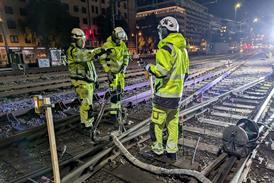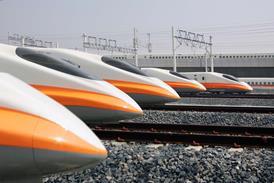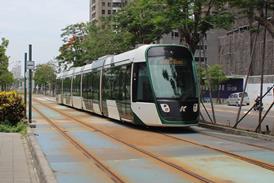Alstom awarded Grand Paris Express Line 18 rolling stock and automation contract
By Metro Report International2021-10-12T11:36:00

FRANCE: Alstom has been awarded a contract to supply rolling stock and automation systems for the future Grand Paris Express driverless metro Line 18.
Already have an account? LOG IN
To continue…
You’ve reached your limit of content for the month
Get enhanced access to Railway Gazette news and weekly newsletters.

For almost 200 years, the Railway Gazette Group has been the leading provider of news, analysis and intelligence for the international railway industry. Our independent and authoritative content is read by operators, regulators and the supply industry in over 140 countries using a variety of tailored subscription packages.
Site powered by Webvision Cloud



